Residents of burnt dormitory in Sumgayit left without help
Explosion in a dormitory in Sumgayit
This is dormitory No. 2 located on Yahya Mammadov Street in Sumgayit. At first glance, the building looks abandoned — windows with broken glass, cracked walls, parts of broken furniture piled in a heap in the courtyard … One gets the impression that no one lives here.
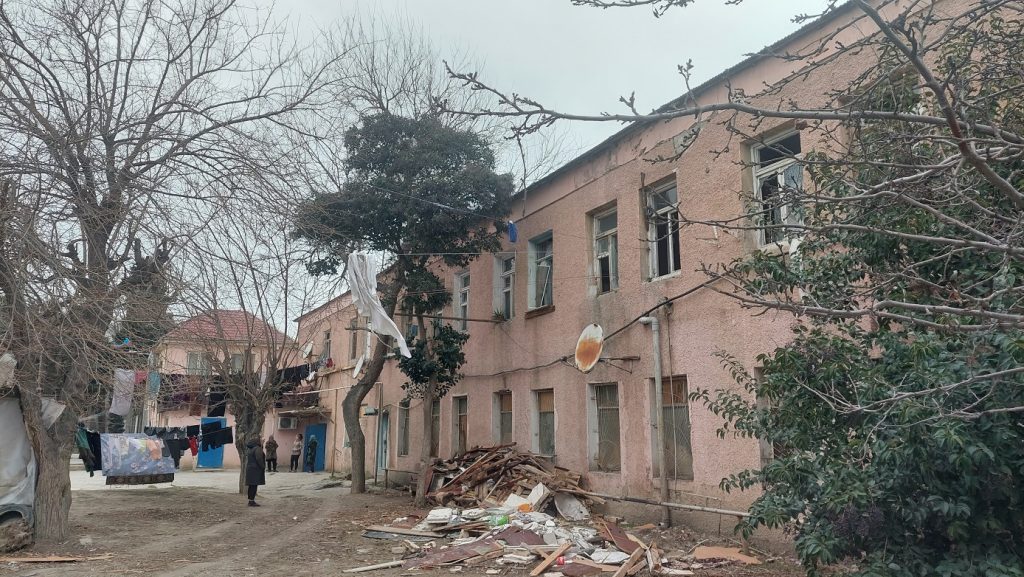
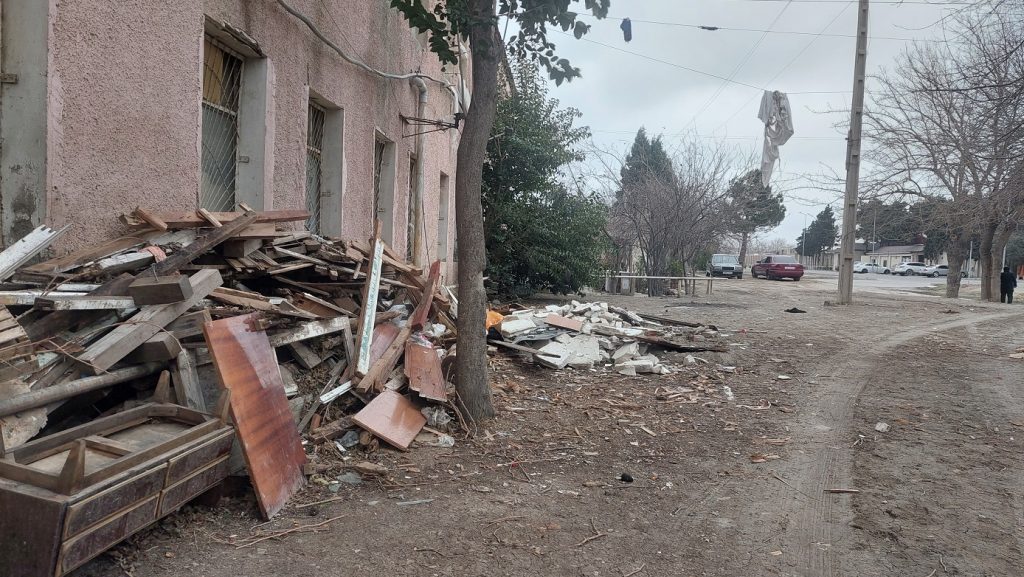
“Watch the building come down on our head,” someone shouts from far away. I quickly look back at the voice.
There are several women standing at the entrance to the two-story dormitory. They live in this building.
They say that until the last few years, mostly displaced families lived here. Later they were provided with new apartments, and they eventually moved in. The other 16 families – from other regions of Azerbaijan – continued to live in the dormitory.
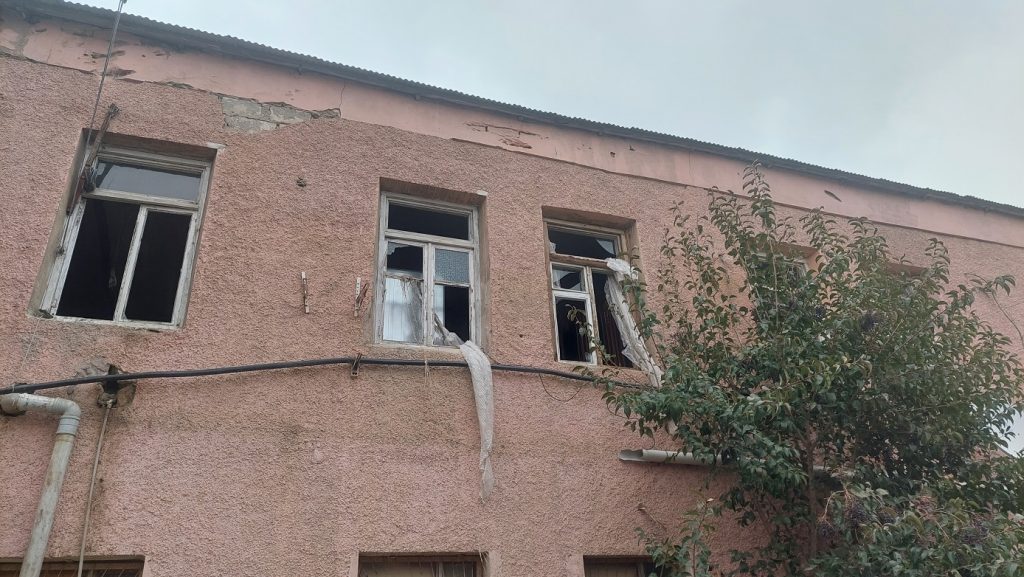
On the night of January 15, an explosion occurred in one of the apartments on the second floor of the dormitory. The partition separating the two rooms of the apartment collapsed, and most of the things inside became unusable. The force of the explosion shattered most of the windows in the building, and in some houses even the doors were broken.
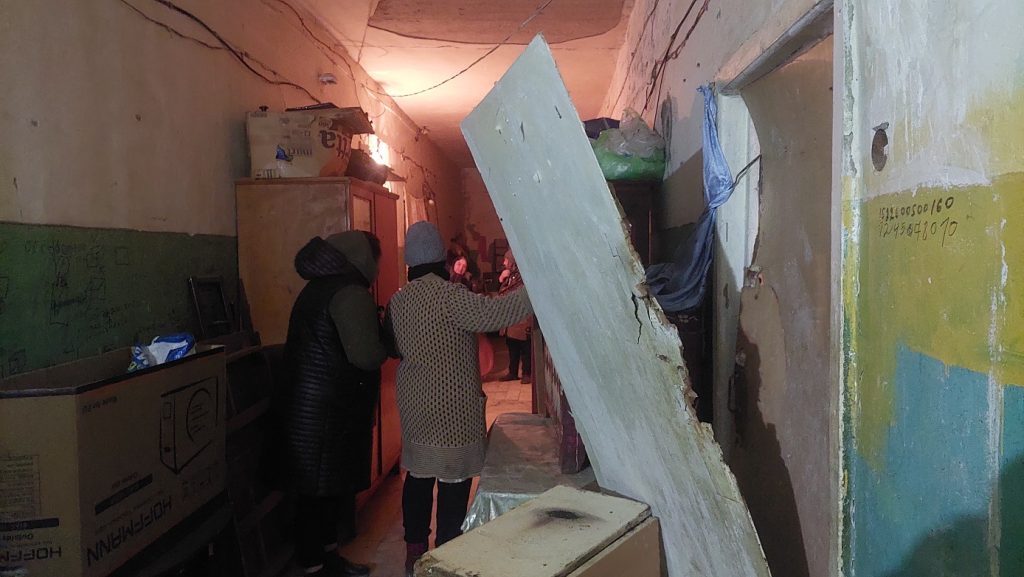
All family members living in the apartment where the explosion occurred – Jeyhun Pashayev, his wife Vyusalya, their children Nyazakat and Yusif – were hospitalized in a state hospital of Sumgayit with various burns.
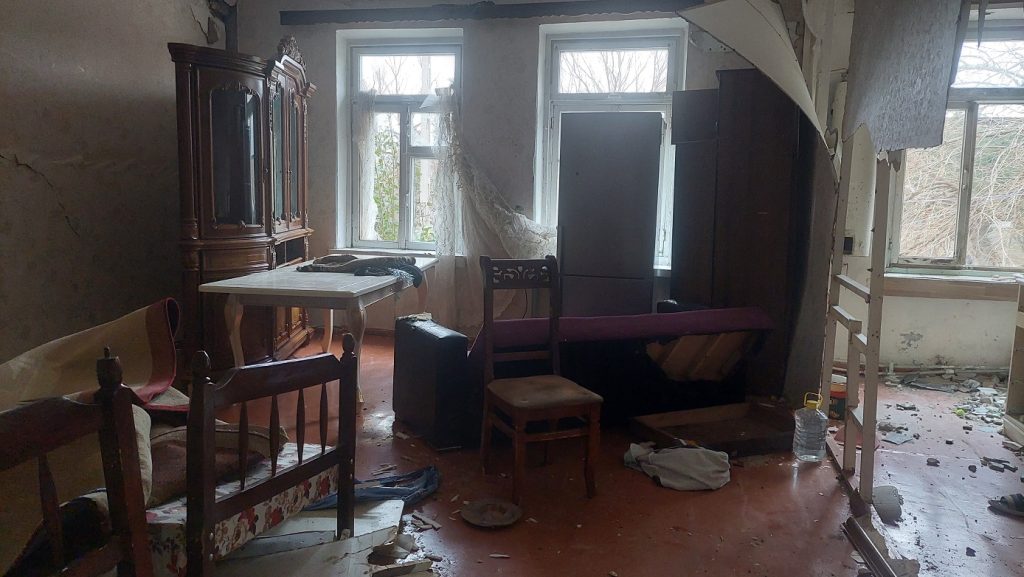
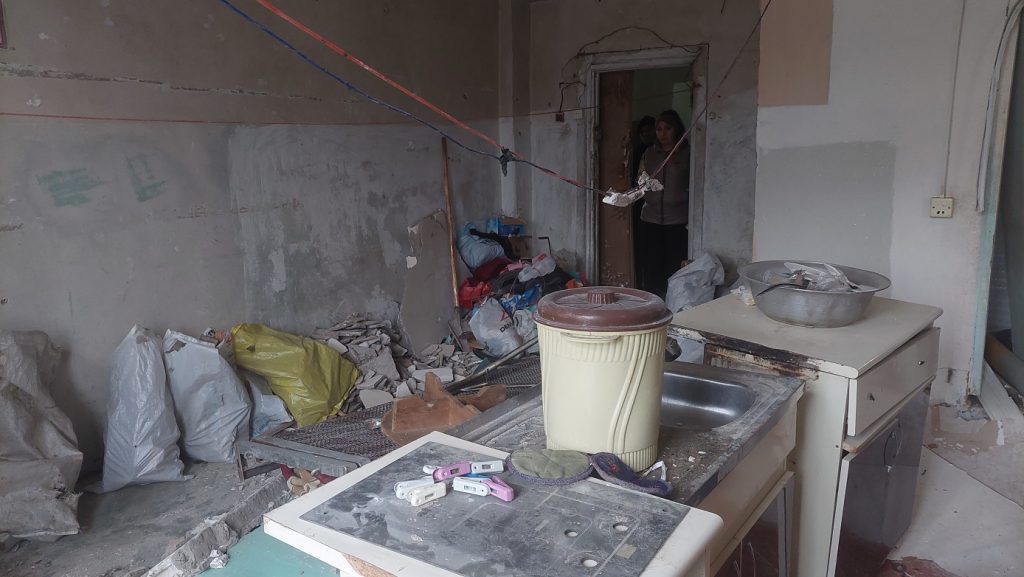
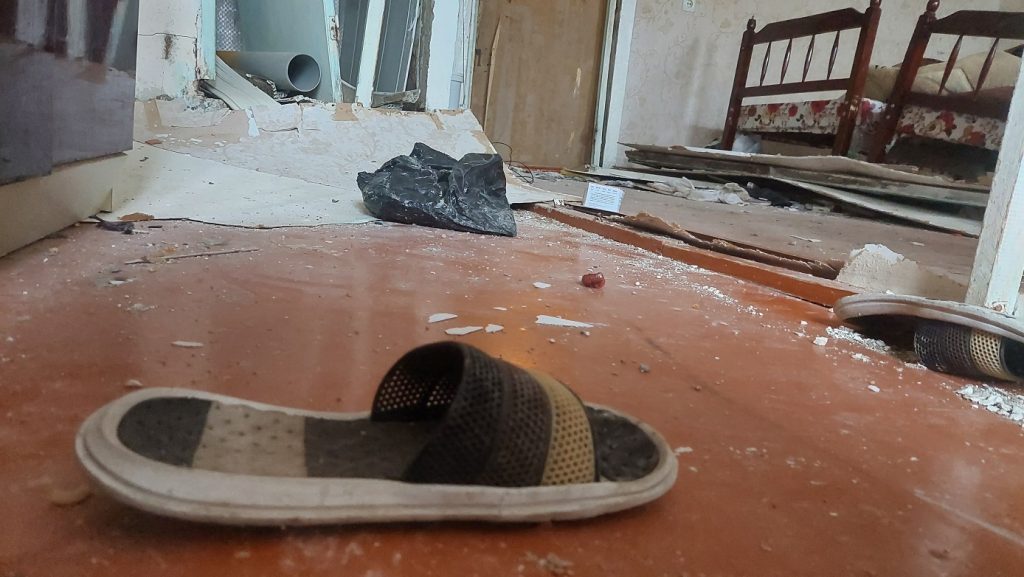
Residents say that the building has never had a heating system. Some heated their rooms with electric heaters, others with wood stoves.
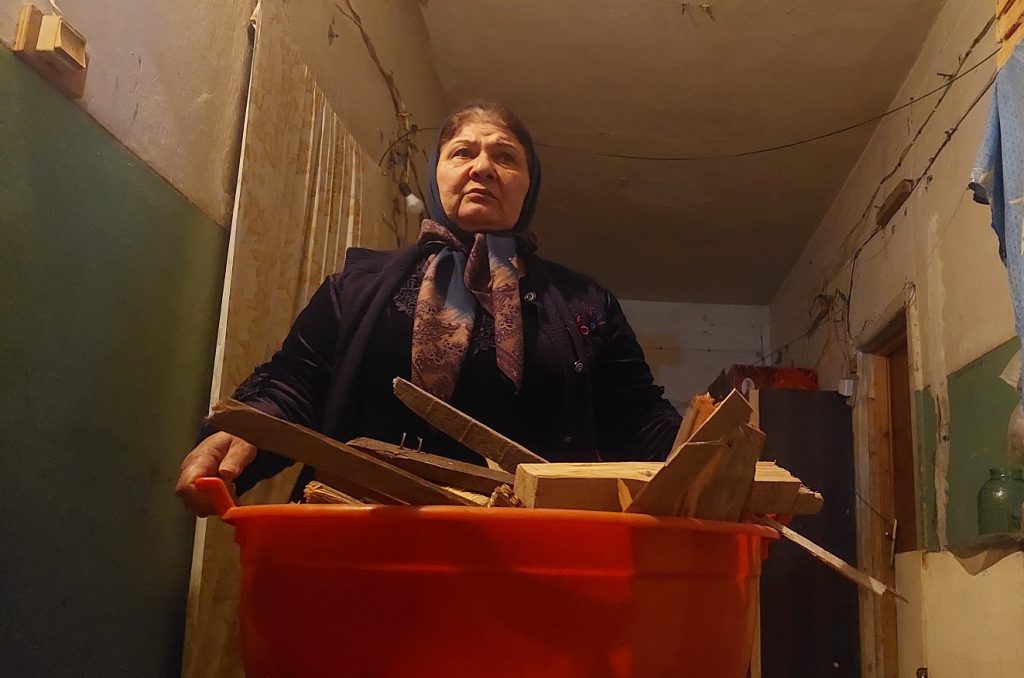
I can’t take my jacket off inside the building because of the cold. Everyone sits in their apartments in wool sweaters. Most of them don’t even take off their hats and scarves. They say to save electricity during the day, they dress very warmly and turn off the electric stoves.
Strangely enough, according to an official statement, the explosion was caused by a gas leak in a non-gasified building. EMERCOM officials who were on the scene that day and the next morning believe that there was a leak from an underground gas pipe that ran close to the sewage pipes of the dormitory. Thus, the gas entered the apartment where the explosion occurred.
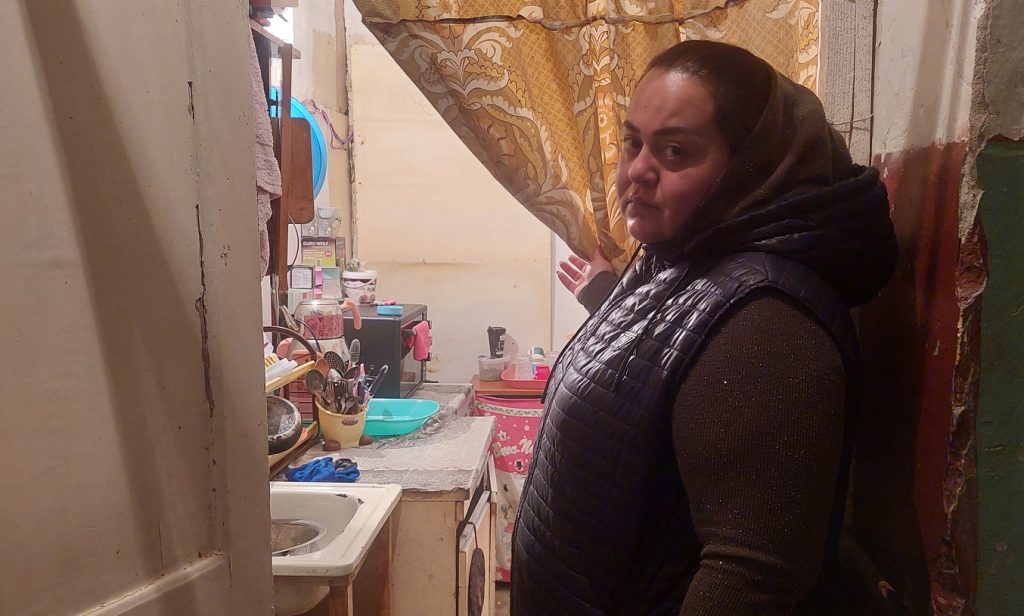
“The building was already in bad shape. And after the explosion, it is impossible to live here anymore,” says one of the residents, Vyusalya Guliyeva, climbing the stairs to the second floor of the house.
Vyusalya is 43 years old. She has lived in this dormitory with her daughter since 2009. She says she was able to buy a room here through the help of her relatives.
Although the building is officially registered as a state dormitory, you can buy a room here unofficially. “Unofficially” means that one can simply pay the landlord money, get a key to the room and move in, without the transaction being documented, and the residents have no ownership rights to these rooms, which they call “apartments.”
Since the explosion in the building took place at night, all the tenants had gone home at that time. Therefore, in the first minutes, no one realized what had happened.
“My daughter and I were at home having dinner. Suddenly there was a big rumble, our door flew open, everything was covered in dust and smoke. I didn’t realize what had happened. This was the first time I had ever encountered such a thing. That’s why I thought it was an earthquake at first. Then I came out and saw everyone bumping into each other. Screams were coming from everywhere. Someone shouted “oh I’m burning”. I looked around cautiously, afraid of bumping into people who might be lying on the floor. Asking if anyone was hurt. Suddenly a woman came out of the burning apartment and ran toward me. Her clothes were burned, and her body had burns too. She was begging me to help, to call someone for help,” Vyusalya recalls.
After the incident, residents stayed in the courtyard of the house in the cold until dawn, waiting for evacuation. But as the expected help did not arrive, they became desperate and returned to their rooms.
“After the explosion, people from the executive branch, the Ministry of Emergency Situations, and from somewhere else came rushing here. And we all listened to what they had to say, trying to understand whether we should hope for help. They just looked around and said, “How do you live here?” That’s all. Then they left,” Vyusalya says.
The disorder and chaos that can be seen from the outside is also present inside the building. In the corridor, tangled electrical wires stretch along the walls. Women cook food on makeshift electric stoves that they place in the hallway. Since there are no outlets, the stoves are turned on by connecting the bare electrical wires by hand.
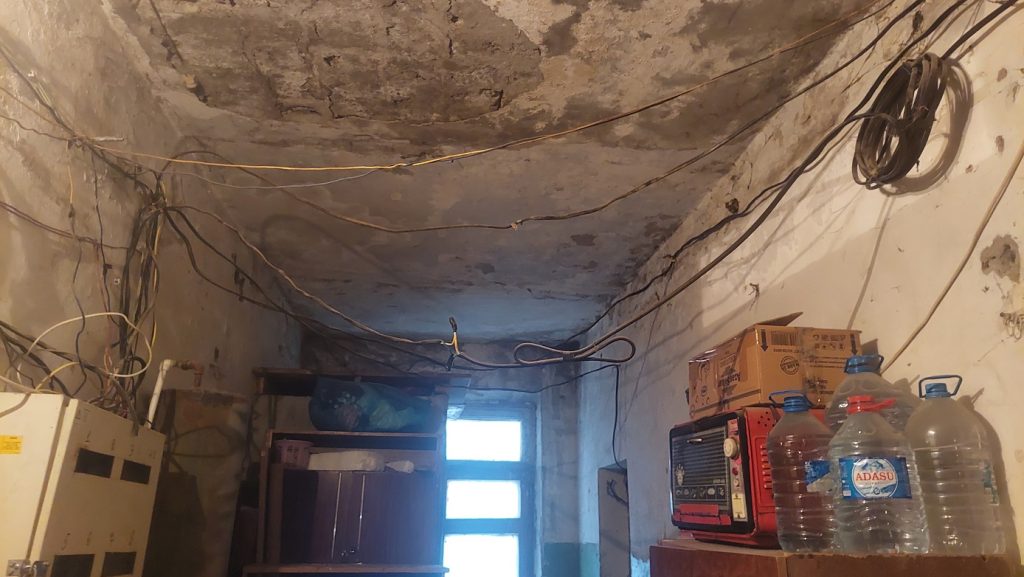
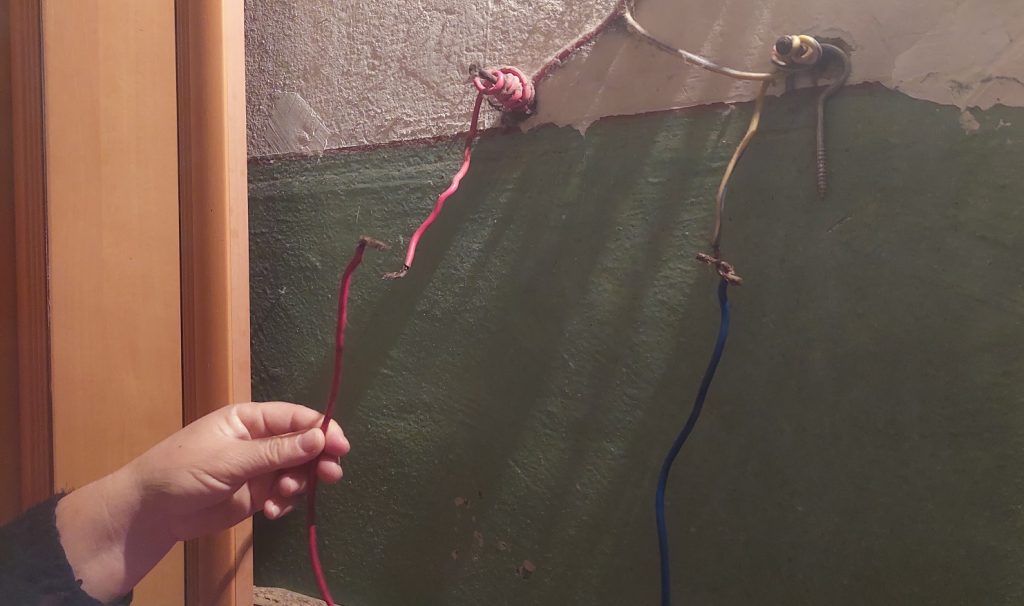
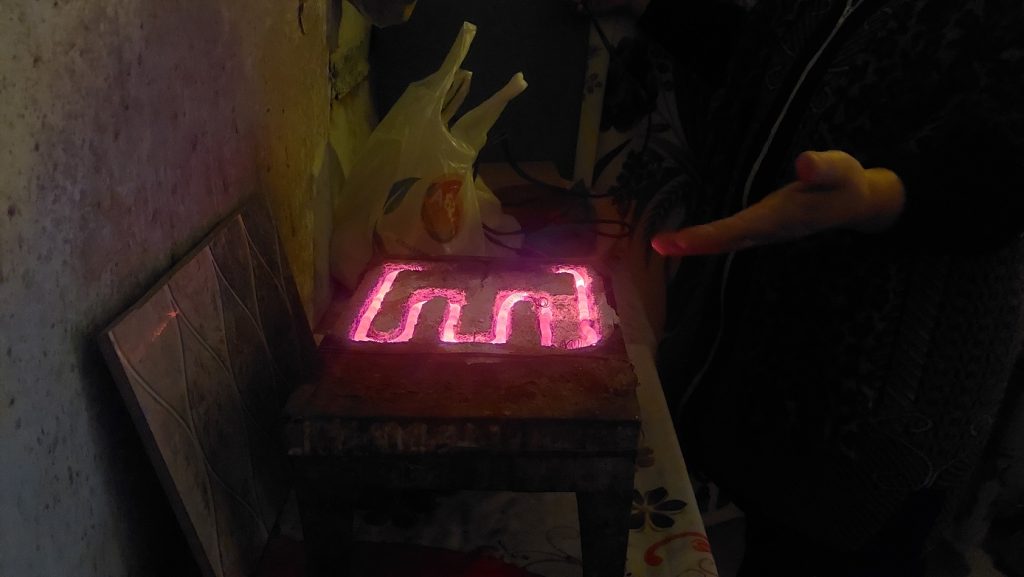
There is only one bathroom in the building. Once inside, there is a strong smell of dampness. There are no lights, the bulbs are burned out. The walls are cracked. Residents have to wash their laundry here in cold water.
“We are freezing here. They should at least put new glass in these windows. There is no heating as it is, and after the windows were blown out by the explosion, the cold has become unbearable. We will either die of cold or fire here,” says Uncle Asif, standing on the other side of the corridor. His house is next to the apartment where the explosion occurred a week ago.
One of the oldest residents of the dormitory is Khatira Karimova, 60. She says she has lived here with her family since 1991. She used to weave carpets on a small loom in the building and sell them. Since this loom belonged to the carpet factory where she worked, she had to return it after the company closed down.
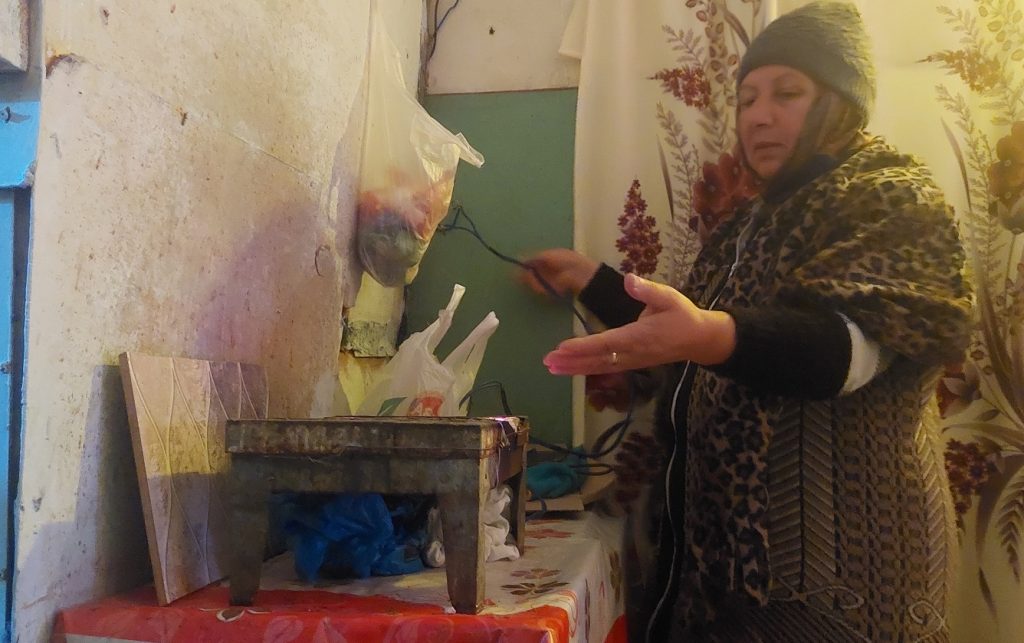
“You see what we’re going through. I am an elderly woman, doing laundry in cold water. Every two days I get a fever, my throat hurts. I walk around sick a lot. We have no life here, but only suffering, our existence cannot be called life. We are crawling, not living,” Khatira Karimova said, crossing her arms on her chest.
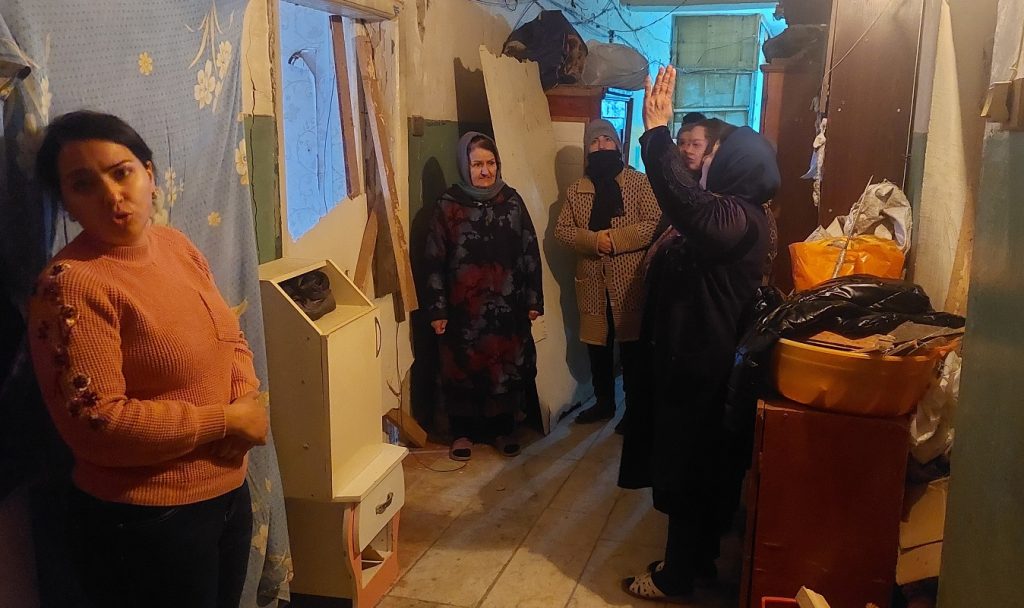
Now the only wish of the building’s residents is to move to new apartments with better conditions. They say that some of them have already left their apartments and started living in rented accommodation. But their financial situation does not allow all of them to do so. So they decided to address the authorities with a joint letter from all the residents; so far they have not received any response.


















